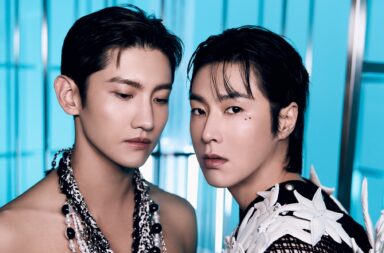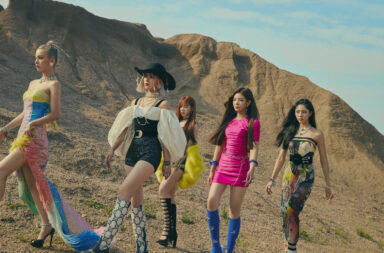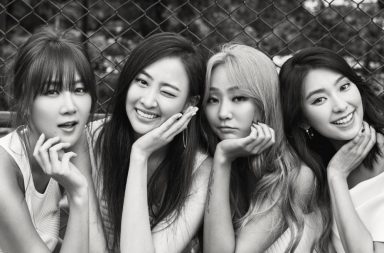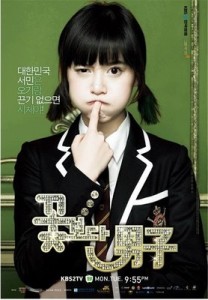 Every year we publish something about K-drama cliches and archetypal characters, and yet year after year we see the same things occur in our favorite (and least favorite) shows. From love triangles, to the mandatory shower scene, to the female villain with short hair, to the self-important male protagonist whose downright vile behavior changes just in time to win over the female lead, these are all overused devices which K-drama watchers have come to expect and tolerate over many an episode. Which K-drama cliches are you completely tired of seeing? Which ones can you live with? Are cliches and archetypes a necessary evil?
Every year we publish something about K-drama cliches and archetypal characters, and yet year after year we see the same things occur in our favorite (and least favorite) shows. From love triangles, to the mandatory shower scene, to the female villain with short hair, to the self-important male protagonist whose downright vile behavior changes just in time to win over the female lead, these are all overused devices which K-drama watchers have come to expect and tolerate over many an episode. Which K-drama cliches are you completely tired of seeing? Which ones can you live with? Are cliches and archetypes a necessary evil?
Lo: Candies. I loathe them from the bottom of my soul. Candies are the Geum Jan-di character — stuck in poverty, plain, plucky, incapable of accepting help even when it would be a good idea, and usually dumb as a brick. They’re not characters, they’re the simple, subservient ideal women of someone. I have no idea who, as I would think that even the most misogynistic man alive wouldn’t be interested in someone capable of being outsmarted by furniture.
Andy: The “will they-wont they kiss?” plotline that runs through an entire series. I understand creators want to build suspense and get the audience back for another episode, but seriously, if people really have that much resistance to kissing, then perhaps they shouldn’t. It’s not that complicated in life. One drama who did it amusingly right was “Phantom/Ghost.” They built up the tension throughout the series, and they never actually kissed. People were shipping the lead couple who didn’t end up together, but the supporting characters ended up together.
As for candies, I detest the uptight, cold, ice princess female lead. She constantly puts off the affections of others, rather a suitor or not, regardless of her own feelings. This is often coupled with a female who is interested in her career and family. It essentially characterizes strong, ambitious women as incapable of love. At least until some strong and doting male lead continually tries to woo the female. K-dramas can’t seem to grasp the concept of a female character having characteristics of both a “candy” and an “ice princess.”
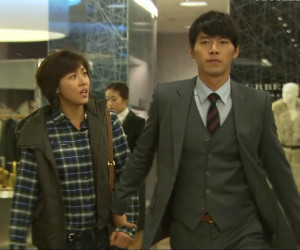 Lindsay: I feel the same way about the counter to Andrea’s ice princess; the ice prince. I get particularly irritated by the male leads that treat the female character like crap despite actually liking her. Just because you are a man you are incapable of expressing your feelings? It’s not that that I want all male characters to be sappy and cute, but acting like a decent human with minimal social skills would be great.
Lindsay: I feel the same way about the counter to Andrea’s ice princess; the ice prince. I get particularly irritated by the male leads that treat the female character like crap despite actually liking her. Just because you are a man you are incapable of expressing your feelings? It’s not that that I want all male characters to be sappy and cute, but acting like a decent human with minimal social skills would be great.
Let’s just combine all the complaints and say no more ice princes allowed to grab dense, plucky girls by the wrist.
Laverne: Love triangles need to die. I am so sick of them. Story arcs do not need to rely on love interests to keep them going! Furthermore, the second lead is constantly contrasted to the lead as the safer, more boring choice. I understand that dramas are trying to say that love isn’t logical, etc etc, but they just end up perpetuating the idea that unhealthy relationships (the aforementioned ice prince and wrist grabbing) are true love while everything else is not.
I think love triangles are lazy writing and made only to gain viewership so watchers can cheer for their pick and if you can’t tell, I really, really hate them.
Camiele: One of the many things that bother me is the random (usually White, sometimes of color) English-speaking character(s). They’re not at all actors, entering the scene 100% aware of the camera, and their English is just abysmal! What’s the use of them in the show? It effectively and instantaneously takes the viewer out of the show and is so completely random; it’s almost as if some idiot extra wanted to randomly try to act without telling anyone and photo-bombed the scene, and the director was too distracted by the awfulness to yell cut in time!
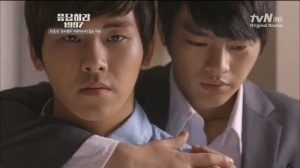 Idelle: I actually think love triangles work in some cases without all the plot contrivance to create the mopey long faces for no particular reason (The Heirs, anyone?). Look at Answer Me 1997, for instance — best love triangle I’ve seen in ages, with a realistic portrayal of a relationship between a girl and her gay best friend that wasn’t played up for laughs. Hoya’s role as Joon-hee was sincere, grounded, and basically a kickass friend. I loved that about the show. But if we’re talking love triangles with lots of weeping and wrist-grabbing, count me out.
Idelle: I actually think love triangles work in some cases without all the plot contrivance to create the mopey long faces for no particular reason (The Heirs, anyone?). Look at Answer Me 1997, for instance — best love triangle I’ve seen in ages, with a realistic portrayal of a relationship between a girl and her gay best friend that wasn’t played up for laughs. Hoya’s role as Joon-hee was sincere, grounded, and basically a kickass friend. I loved that about the show. But if we’re talking love triangles with lots of weeping and wrist-grabbing, count me out.
Some archetypes are actually somewhat enjoyable when played by capable actors — Lee Seon-kyun, for instance, has basically built a career playing pragmatic, straight-talking types. I think that has to do with his roles basically being legitimate extensions of himself, but I have to say I enjoy this particular character archetype, be it male or female. They generally make for faster plot movement, contrived obscuring of The Truth for Noble Idiocy’s sake, and most of all, less silly crying — which is just annoying.
One character archetype I’ve had enough of is the “oh look I act like I’m dumb but I’m actually a genius,” also known as every single role Lee Seung-gi has ever played, and is going to play, because ditto for his new cop role in You’re All Surrounded. Real geniuses are often autistic, as in the case of Joo-won‘s doctor character in Good Doctor (and Spencer Reid from Criminal Minds). I’d like to see more of these realistic portrayals, simply because I don’t have to enter into a suspension of disbelief in order to buy into the setting of the plot to begin with. God knows we have to do that enough already — the concentration of pretty per foot hardly mirrors anything like reality.
Dora: Open-eyed kisses and wrist-grabs remind me of the constant replays editors always insert. We get it that the hug/kiss/touch was a surprise, but why do we have to rewatch it in slow motion three more times?
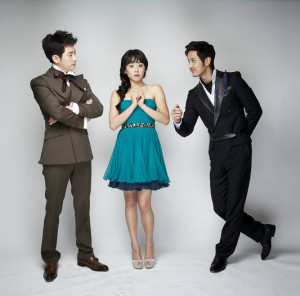 I also don’t understand why characters in dramas display facial expressions that I’ve never seen anyone make in real life. The ones inserted for comical relief are fine, but exaggerated pouts and scoffs just dumb down the character for me. And that’s not something I want to see from the protagonist I’m supposed to support.
I also don’t understand why characters in dramas display facial expressions that I’ve never seen anyone make in real life. The ones inserted for comical relief are fine, but exaggerated pouts and scoffs just dumb down the character for me. And that’s not something I want to see from the protagonist I’m supposed to support.
I agree with Idelle in that love triangles do work sometimes, but I just wish they weren’t always so obvious. Despite all the arranged fiancées and childhood lovers, we pretty much always know who the main guy/girl is going to end up with (even in Answer Me 1997). Also, the existence of love triangles in so many series has made me expect it to appear everywhere now. Last year, when I was watching Cheongdamdong Alice, I kept waiting for Kim Ji-seok‘s character to make his move on Moon Geun-young‘s character, and was mind-blown when it never happened. That was definitely a first for me.
Leslie: In an overall kind of way, I could handle the formulaic plots of love triangles and the like more easily if we got more interesting, complex characters instead of archetypes and silly tropes. But the combination of it all in one is not only irritating for all the reasons mentioned but also it just seems a little lazy.
But while I personally am extremely irritated by the short-haired female villain because of sporting short hair myself, I’ve also come to expect it, and it wouldn’t be the same without it. I don’t watch K-dramas expecting to think. I expect to be entertained mindlessly, and that’s why cliches are the staple of rom-coms and melodramas: they don’t require us to think or understand much because we’re already familiar with them.
Nevertheless, to get my break from all of it, that’s when I watch other genres, especially those from cable since they typically have more thought-provoking material. For instance, one of my favorite dramas is At the End of the World off jTBC, and it is an incredibly well-shot, well-written drama with compelling characters.
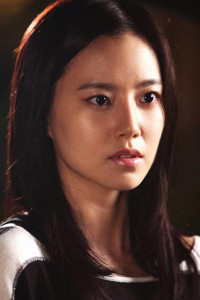 Willis: I agree with you Leslie. Diving into certain dramas genres such as the rom-com, I expect certain archetypes and tropes to occur (the lead characters to end up together, unspoken love tension, etc). Unfortunately, these are a part of the package. I suppose it’s the process of navigating the journey with somewhat likeable characters that entices us to continue viewing.
Willis: I agree with you Leslie. Diving into certain dramas genres such as the rom-com, I expect certain archetypes and tropes to occur (the lead characters to end up together, unspoken love tension, etc). Unfortunately, these are a part of the package. I suppose it’s the process of navigating the journey with somewhat likeable characters that entices us to continue viewing.
With that said, the one cliched dealbreaker I utterly detest with fervor is when a character experiences amnesia. I have had the misfortune to run into this plot device in my last couple attempts at completing a K-drama (Nice Guy and Iris 2). Each time a character spontaneously loses his/her memory, I go into K-drama hiatus for a few months in hopes of recuperating from the disappointment.
Joyce: Amen to what everyone has said about wrist-grabbing and open-eyed kisses. May I also add, that the way dramas tend to romanticize forced kisses or a wrist-grab, really makes me want to pull out my hair. In the first place, those actions are not romantic in any way. Just because it’s done by a hot guy with romantic music in the background, does not make it romantic.
That said, while I typically find archetypes or cliches tiresome, I think it lies entirely in the execution. K-drama writers tend to just take these cliches and archetypes as a whole and dump it into their plot. What they fail to do is put their own creative spin to it. One of my favourite spins on these archetypes is when the loan shark in Dream High suddenly realized his dream of opening a entertainment agency and helped the main characters make their debut. That’s a great example of how writers can put their own twist on these cliches to make it fresh. Why do more K-dramas not try to achieve this? Perhaps it’s a risk, and perhaps the audience is already accepting of these stock characters and plots so there’ really no need to be ingenious.
I do think archetypes and cliches are a necessary evil, but these could perhaps evolve with time. With the high number of dramas that are being churned out in the industry, it’s impossible that every drama has a heroine, hero, and conflict that are unique from each other. There’s definitely going to be certain type of characters and plot development that’s slightly more popular with the masses, which motivates writers to jump onboard this bandwagon.
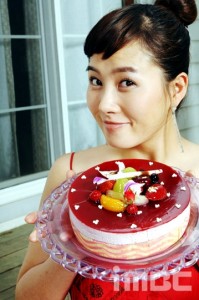 Since the boom of Korean dramas a decade ago, the popular ones seem to always have a candy, a stoic chaebol, cancer, and shrilly parents. Thus, of course you’re going to see dramas try to reproduce the success by replicating the formula. However, in the recent years, you do see dramas trying to stand out by deviating from the norm. Case in point: My Name is Kim Sam-soon and Answer Me series. And when more of such unique dramas become hits, it might be a matter of time before everyone starts jumping on board.
Since the boom of Korean dramas a decade ago, the popular ones seem to always have a candy, a stoic chaebol, cancer, and shrilly parents. Thus, of course you’re going to see dramas try to reproduce the success by replicating the formula. However, in the recent years, you do see dramas trying to stand out by deviating from the norm. Case in point: My Name is Kim Sam-soon and Answer Me series. And when more of such unique dramas become hits, it might be a matter of time before everyone starts jumping on board.
Laura: I don’t know if this necessarily belongs here, but I for one am sick and tired of seeing or hearing certain supposedly important scenes/monologues/flashbacks at least ten times during the drama. I mean we get it, the director wants to emphasize how crucial this bit is for the storyline but it always makes me feel as if they assume the viewers are much more forgetful than they really are. The same goes for those overly lecturing ending monologues. And those OST songs that are inserted at every possible or impossible moment. Generally too much repetition of anything annoys me a lot.
Why do writers and directors continue to rely on these cliches? Well, because people apparently still want to see them. Why have we seen a colourful variation of the “this-is-not-your-usual-love-story-but-it-actually-is” movies in the last few years in the US rom-com genre? Because once the formula has been proven successful, it will be imitated. And as long as those dramas still get high ratings and people are still getting intensely emotional over love triangles and “will-they-won’t-they” situations, why should the people in charge feel the need to change anything? Sadly, most dramas do not endeavor to further any artistic, creative developments but are merely another way of making a whole lot of money.
(Images via KBS, SBS, MBC, tvN)
